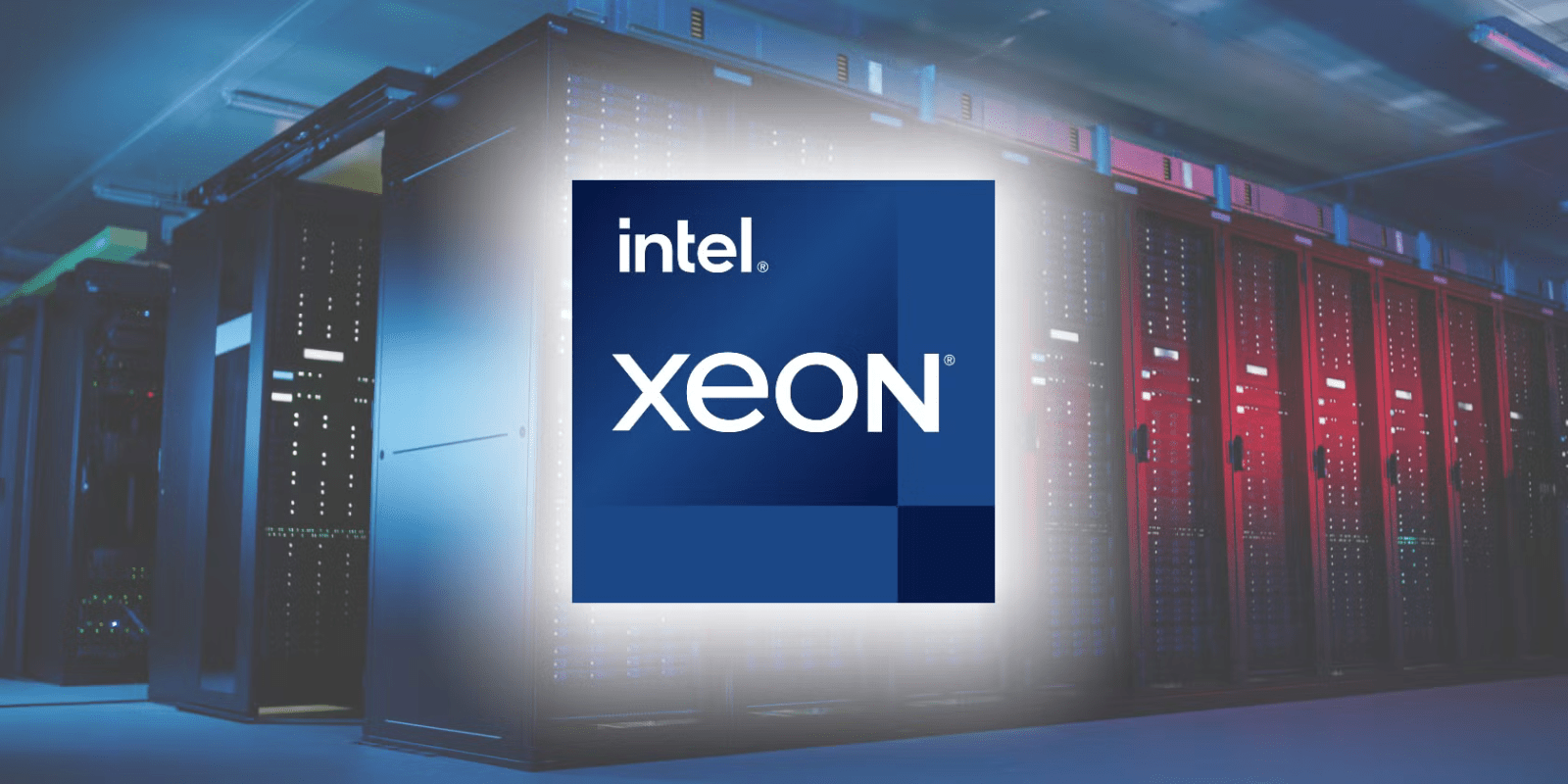Intel Xeon Dedicated Servers: Features, Advantages, and Practical Uses
Everything About Intel Xeon Dedicated Servers
Intel Xeon dedicated servers have become the backbone of data centers, cloud services, and enterprise-level computing environments. Known for their powerful processing capabilities, scalability, and reliability, Intel Xeon processors have dominated the dedicated server market for years. This article explores the features, advantages, and practical uses of Intel Xeon dedicated servers in modern times, explaining why they are the go-to choice for resource-intensive tasks.
What is Intel Xeon?
Intel Xeon processors are a family of CPUs designed for high-performance computing tasks in servers, workstations, and enterprise-level systems. First introduced in the late 1990s, Xeon processors have been continuously upgraded to meet the growing demands of modern computing environments. Unlike consumer-grade processors, Xeon CPUs are built to handle intensive tasks such as big data processing, AI workloads, virtualization, and database management.
With features like multi-core architecture, hyper-threading, large cache sizes, and advanced support for memory and storage, Xeon processors deliver powerful performance for a wide range of server applications. The combination of reliability, scalability, and sheer processing power makes Intel Xeon a leader in dedicated server solutions.
Features of Intel Xeon Dedicated Servers
- Multi-Core Architecture Intel Xeon processors come with multiple cores, allowing them to handle several tasks concurrently. With models featuring up to 28 cores and 56 threads, Xeon servers can efficiently manage large volumes of data and multitask without experiencing performance bottlenecks.
- Error-Correcting Code (ECC) Memory Support Xeon processors support ECC memory, which detects and corrects internal data corruption. This ensures data integrity and minimizes the risk of crashes or data loss, which is especially important in critical business operations.
- Hyper-Threading Technology Hyper-threading allows each physical core of the processor to run two threads simultaneously, effectively doubling the number of tasks the CPU can manage at one time. This boosts performance for multi-threaded applications, making Xeon processors ideal for resource-intensive workloads like virtualization, database management, and AI processing.
- Large Cache Sizes Intel Xeon processors feature larger cache sizes compared to consumer-grade processors, ranging from 8 MB to 60 MB. The cache plays a crucial role in reducing data access times and speeding up performance, particularly for applications that frequently access the same data.
- Advanced Virtualization Support Xeon CPUs come with Intel Virtualization Technology (VT-x), which enhances the performance and efficiency of virtualized environments. This makes Xeon dedicated servers the ideal choice for running virtual machines, cloud computing services, and containers.
- Scalability Intel Xeon processors support advanced scalability features, such as multi-socket configurations. This allows for multiple Xeon CPUs to work together on the same server, providing an almost unlimited scale of processing power to meet growing business needs.
- High Memory Capacity Intel Xeon servers support a large amount of RAM, often extending up to 1.5 TB or more. This high memory capacity is essential for data-intensive applications such as machine learning, in-memory databases, and big data analytics.
Advantages of Intel Xeon Dedicated Servers
- Superior Performance for High Workloads Intel Xeon dedicated servers are designed for tasks that require heavy computing power. Whether it’s running databases, rendering graphics, or handling AI-driven applications, Xeon processors offer the robust performance needed to process large datasets, perform real-time analytics, and support advanced computations without compromising speed.
- Reliability and Stability Intel Xeon processors are built with enterprise-level reliability. They are designed for continuous 24/7 operation, making them suitable for mission-critical applications where uptime is essential. Features such as ECC memory support and enhanced error-checking mechanisms ensure stable and dependable performance.
- Scalable for Growing Businesses Xeon servers provide flexibility and scalability, which makes them suitable for businesses that anticipate growth. Whether adding more cores, RAM, or storage, Xeon servers allow for seamless upgrades without needing to overhaul the entire infrastructure.
- Enhanced Security Features Intel Xeon processors come with built-in security features like Intel SGX (Software Guard Extensions) and Intel Boot Guard, which provide secure environments for sensitive data processing and help protect against firmware-level attacks. These security features are critical for businesses handling sensitive data or working in regulated industries.
- Efficient Virtualization and Cloud Hosting The multi-core and hyper-threading capabilities of Xeon processors, along with virtualization technology support, make them ideal for creating and managing virtual machines. This efficiency allows businesses to run multiple virtualized environments on a single server, reducing costs and improving resource management.
- Long-Term Support Intel Xeon processors receive long-term support, meaning they are regularly updated with patches and improvements, ensuring they remain secure and perform well over time. This long-term stability is especially important for enterprises that require consistent performance without frequent hardware upgrades.
Practical Uses of Intel Xeon Dedicated Servers
1. Enterprise Applications and Databases
Intel Xeon dedicated servers are often deployed to run large-scale enterprise applications such as Enterprise Resource Planning (ERP) systems, Customer Relationship Management (CRM) software, and large databases like Oracle and SQL Server. These applications require significant processing power, memory, and storage, making Xeon servers the perfect choice to ensure smooth and reliable performance.
2. Cloud Computing
Xeon processors power many of the cloud services available today. Thanks to their support for advanced virtualization and containerization, Xeon servers are used in cloud hosting environments, including Infrastructure as a Service (IaaS) and Platform as a Service (PaaS). Their scalability makes it easy for cloud providers to offer flexible and powerful solutions to their clients.
3. Big Data and Analytics
With businesses increasingly leveraging big data for insights and decision-making, Intel Xeon servers are crucial for processing and analyzing large datasets. Their multi-core, high-memory support makes them ideal for handling complex queries and real-time data analysis in big data environments.
4. Artificial Intelligence and Machine Learning
Xeon dedicated servers are widely used in AI and machine learning applications, where large amounts of data need to be processed rapidly. The advanced computational capabilities of Xeon CPUs make them suitable for training machine learning models, running deep learning algorithms, and conducting AI research.
5. Virtualization and Containerization
Intel Xeon dedicated servers excel in environments where virtualization or containerization is key. Many businesses use Xeon-powered servers to run virtual machines or containerized applications like Docker and Kubernetes. This allows companies to make the most of their server hardware, maximizing efficiency by running multiple applications on a single physical server.
6. Rendering and Multimedia Processing
For industries involved in rendering 3D models, video editing, and multimedia processing, Intel Xeon processors provide the computational power necessary to handle these demanding tasks. Whether it’s rendering high-resolution video or producing complex 3D animations, Xeon processors can manage large workloads without lag.
7. High-Traffic Website Hosting
Xeon dedicated servers are often used to host websites with large amounts of traffic. From e-commerce platforms to media streaming services, Xeon-powered servers provide the stability, speed, and resources necessary to handle thousands or even millions of daily visitors without affecting performance.
Conclusion
Intel Xeon dedicated servers are the go-to choice for businesses and organizations that require high performance, scalability, and reliability. With their multi-core architecture, advanced virtualization support, high memory capacity, and error-correcting features, Xeon servers are ideal for enterprise applications, cloud computing, big data processing, and more.
Whether you’re a business handling resource-intensive workloads or need a stable and secure environment for virtualized applications, Intel Xeon dedicated servers offer the power and flexibility to meet your needs. Their versatility and performance in modern-day server infrastructure make them a smart choice for organizations looking to future-proof their IT systems.



0 thoughts on “Intel Xeon Dedicated Servers: Features, Advantages, and Practical Uses”